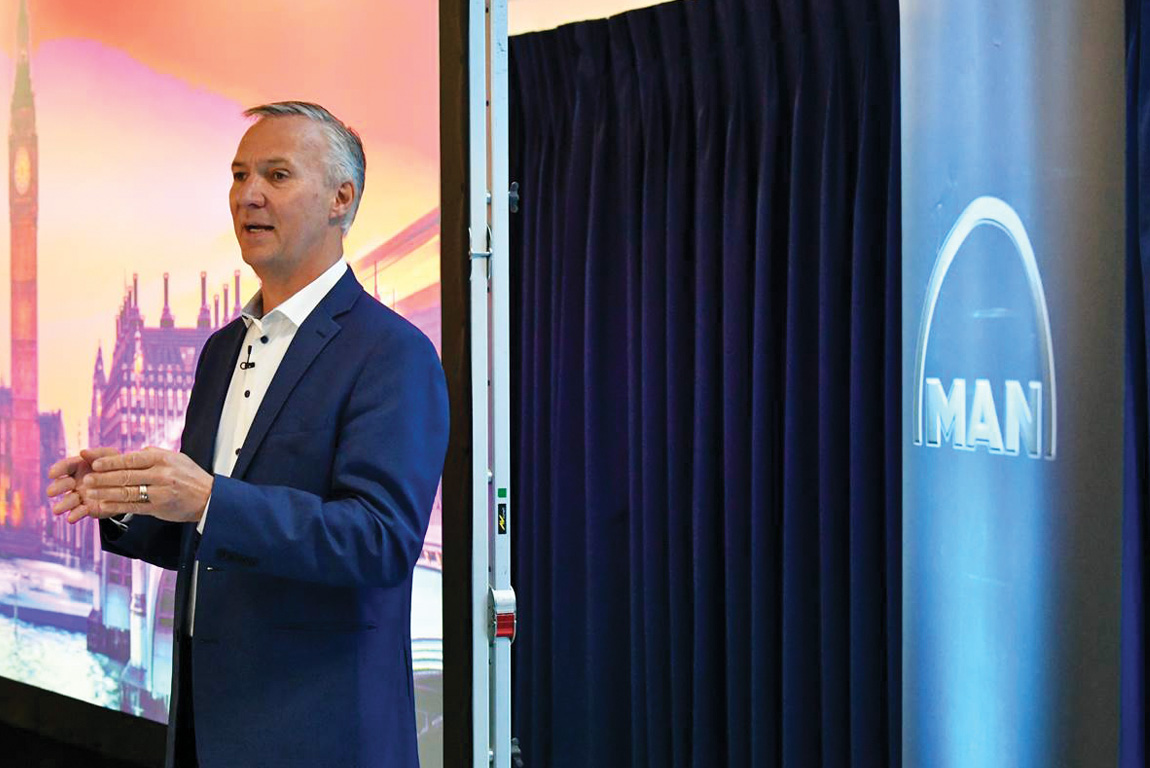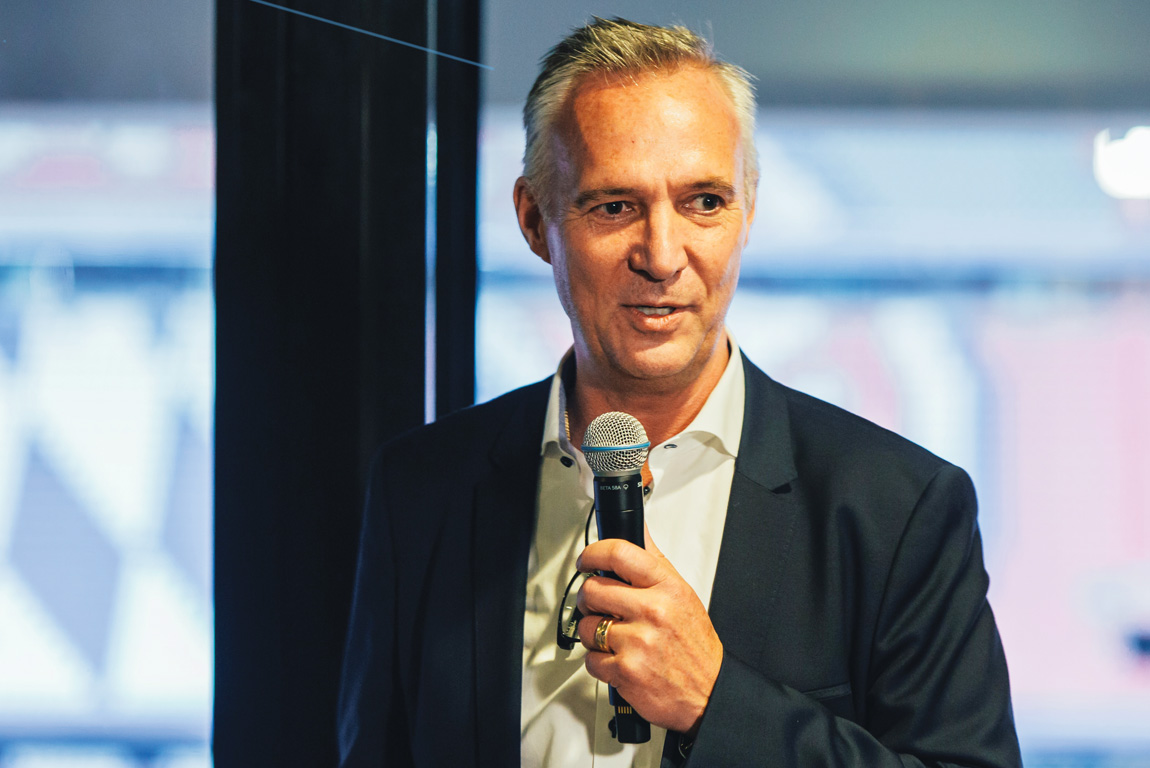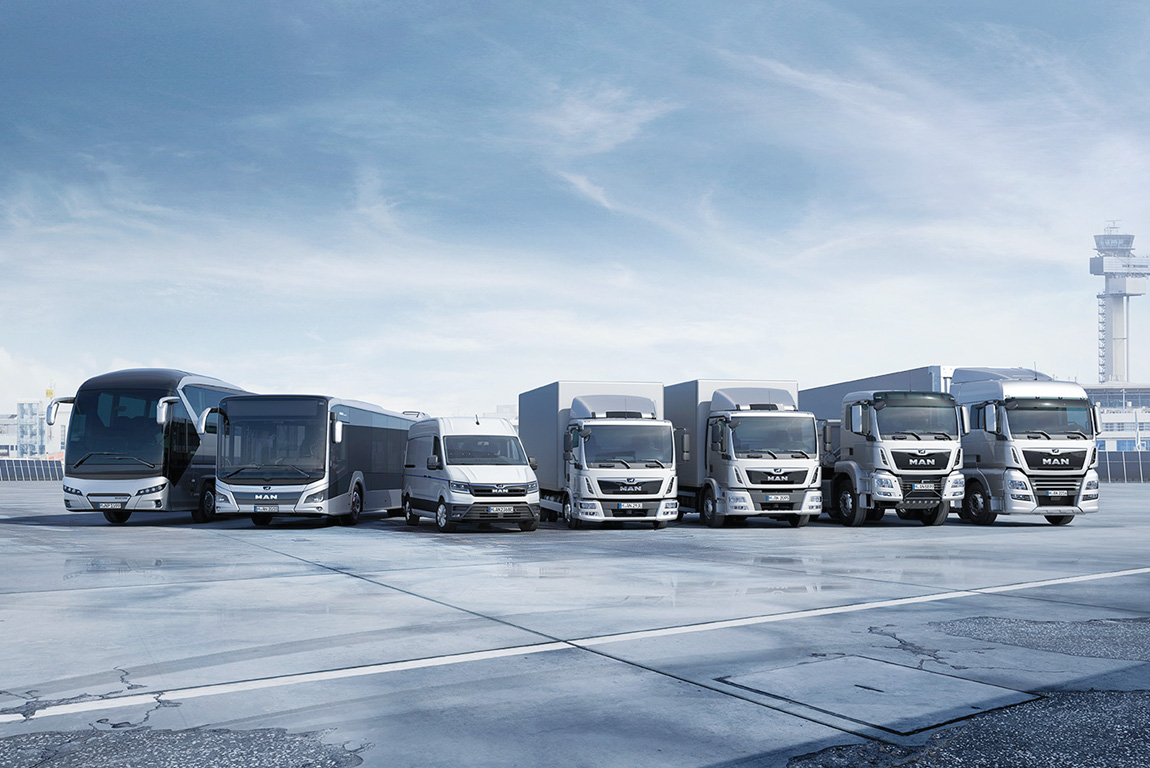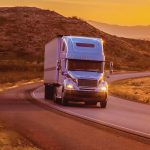Face to face with Göran Nyberg

JARLATH SWEENEY goes face to face with Göran Nyberg, executive board member for sales and marketing at MAN Truck & Bus
What was your perception of the MAN brand prior to joining and subsequently having got to know the product?
That is a relevant point, because when I left Europe in 2012 I had been competing with MAN for many years. I’d always had great respect for the brand, but, honestly, I had a hard time getting my head around what it stands for. Volvo has always been about safety, for example, but coming back to Europe six years later, I have seen that MAN has started a journey to really build up the brand again, sharpening up the messages that are relevant to recreate the personality, profile and backbone of the brand, which I think is absolutely critical.
A well-engineered product is beneficial for those using it, because they know how good it is. In today’s environment, however, you need to shout about it. I think creating a strong profile of the brand is most important and, so far, the team has done a great job of that.
Surely customer satisfaction is important, too?
Yes, undoubtedly. Ensuring customer satisfaction is key. Once we start performing on a higher level of customer satisfaction, brand perception and brand strength will come with it. We are on a good path and the brand has good momentum.
We have a strong solid product range, which is perhaps a bit classic, but we are working hard on a renewal programme. So, I think it is a good time to join this company, because a lot of things are lined up to take the next step.

In relation to pride in their trucks, the top Scandinavian brands enjoy a loyal following. Do you think that MAN has that same level of desirability, or is this something that needs to be worked on?
Yes, it definitely needs work. One should always start with the users of our products who are really loyal, appreciative of the brand and proud of ownership, but it’s a perception that is lower than we desire, and is something that is a part of our journey to develop the brand. It’s very important – and taking a different approach to how to communicate will be part of our future in the way we go to market.
MAN has always been associated with the founder of the diesel engine, Rudolf Diesel. Do you think that this link will continue to be as strong into the future?
I would say that, in the near future, the diesel engine will still be a very important part of the equation, and the latest generation of diesel technology we have developed is really taking a big step forward.
As an original equipment manufacturer, we have invested heavily in research and development to understand the most feasible way to market our brand. It doesn’t matter if we have a good solution, if it doesn’t bring down the total cost of ownership (TCO), we will fail. So, technology versus costs need to go hand in hand, together with quality and reliability, because reliability is part of the backbone and core of MAN.
All stakeholders – including legislators, truck manufacturers and energy producers – need to come together and agree on the way forward on carbon reduction, because today it’s scattered. There is lots of focus on our sector. We don’t mind that, but the prerequisite for us is to deliver a feasible solution that also has the support in the market. It needs to be a shared responsibility.
I think that it’s a bit unfair that there is 100-percent attention on the truck manufacturers. We will do our part, but if this is going to work and get the benefits that are needed for the environment, then we all have to work together. That’s not happening now and 2025 is just around the corner. So, I’m nervous that the targets will fail for reasons outside of our control.

Where do electric powertrains fit into this plan?
The legislation needs to cover the entire basis and, as I said, the prerequisite is for us to deliver a feasible solution, because it doesn’t matter if we produce a range of electric vehicles that nobody sees the value in buying and we cannot force them to take them up.
Whether it’s compressed natural gas (CNG), liquefied natural gas (LNG), hydrogen, electric vehicles, or whatever, MAN Truck & Bus has a broad product portfolio. Then of course we have the well-to-wheel discussion, in that it needs to be fixed and settled, because we can’t accept a surprise. We might deliver a solution that is applicable in 2025, and then if suddenly in 2027 the energy we are using is not acceptable anymore, we will all have failed.
Moving on to connectivity and telematics and the RIO platform that MAN has developed, is this something that will be rolled out not only for the trucks, but also for the buses?
Our approach to connectivity is to have an open platform and, of course, our pan-European offering is based on the RIO platform, but it’s like a smartphone; the customer buys it to have access for private and business needs.
Our strategy is to enable us to be more customer orientated and customer focused and have an open interface that fulfils whatever needs a customer has; small or large – we need to have that. Let’s see what pans out in the future, but we definitely want to make sure that we develop services that may be more unique to vehicles, but we will also work with partners in the wider perspective, as it is all part of logistics.
Actually, we are quite far along with bus and coach operators. The RIO box is open platform and the opportunities are huge. It’s all about operations becoming more efficient – the margins are getting smaller, especially for the bus and coach operators, and we can deliver digital solutions through helping customers operate their products more efficiently by taking a close look at the performance of their fleets.
• Jarlath Sweeney is the owner of Fleet Publications, the largest publisher of transport-related magazines in Ireland. Read Fleet Transport here: https://fleet.ie/
Published by
Focus on Transport
focusmagsa




